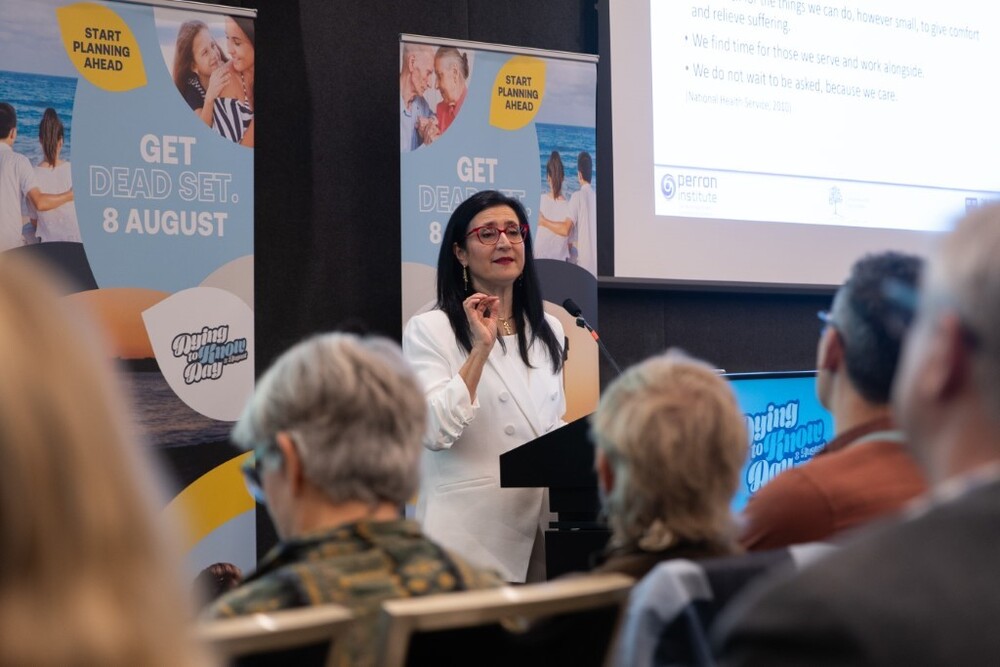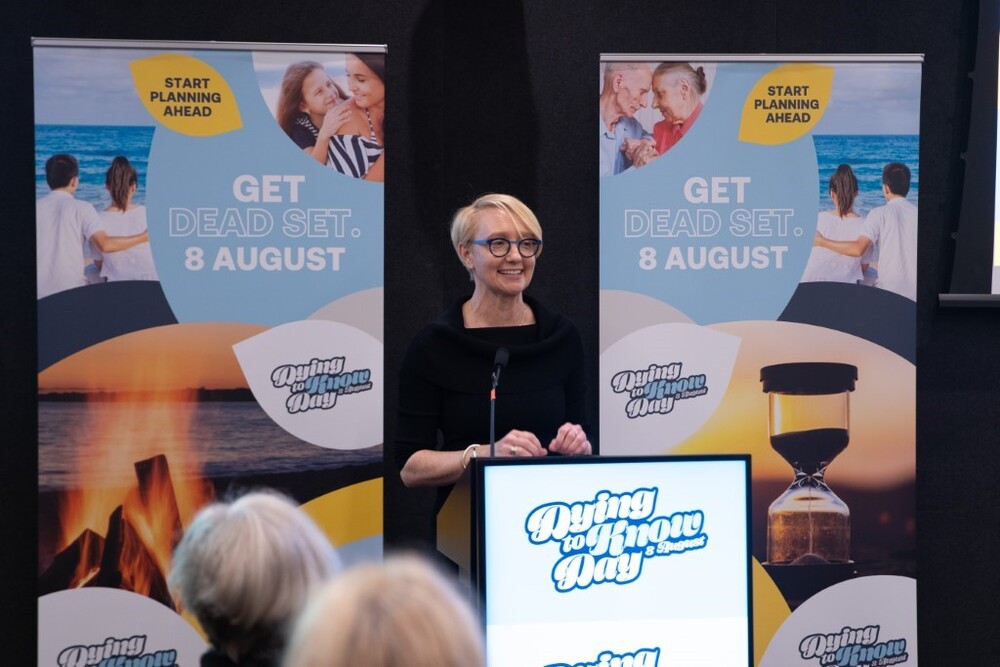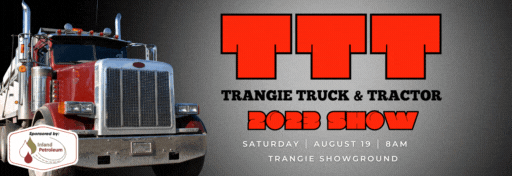Dying to Know Day starts end-of-life conversations across NSW
Sharon Bonthuys
16 August 2023, 7:40 AM
 End-of-life planning can even include "send offs". Photo: Sharon Bonthuys.
End-of-life planning can even include "send offs". Photo: Sharon Bonthuys. For many people, talking about death and dying is an uncomfortable subject – and a conversation that is very difficult to start. But this is changing thanks to progressive legislation, high profile specialist supporters, and a grassroots movement that aims to improve “death literacy” and start conversations about end-of-life planning all over the country.
August 8 was Dying To Know Day, an annual event now in its 11th year, which aims to improve death literacy and help reshape the way communities and individuals approach death, dying and end-of-life planning.
Dying to Know Day asks Australians of all ages and stages of life to ‘get dead set’ around the reality of death and dying, according to Karen (Kaz) Dawson, CEO of Community Care Northern Beaches (CCNB).
“By making important choices as individuals, we can create death-literate communities that offer quality, person-centred support and care we all need at the end-of-life,” she said.
Dozens of Dying To Know Day events are to be staged across the country during August as part of this initiative to build knowledge, compassion and practical skills to support active decision-making around end-of-life choices.
The events in NSW are as diverse as the conversation topics, including palliative care film screenings, library talks, workshops on life story legacy writing, understanding death documents, “send-offs”, and even a “brunch with death” to discuss preparing “emotional wills”. Several local health districts are also hosting palliative care morning teas and barbecues.
In central west NSW, Dubbo’s Reading Cinemas screened the palliative care documentary Live the Life You Please on August 8. The feature-length social impact documentary advocates for better access to end-of-life services, providing “an intimate portrait of the end-of-life experience and makes profound observations about life, death and what happens in between.”
We reached out to the cinema chain to find out more information about this event but did not hear back before publication. The documentary has also screened in other regional locations in August.

PHOTO: 2023 WA Australian of the Year, Professor Samar Aoun, wants to put people at the centre of end-of-life planning.
Julie starts a small town conversation
In the small New England town of Bingara, local businesswoman Julie Emery organised a death literacy session at her local library. Ms Emery lived in the Northern Territory in the 1990s when it became the first jurisdiction in the world to legalise euthanasia in 1995, only to be overturned by the federal government two years later.
“I was curious about [euthanasia]. We don’t let our dogs suffer. We assist them to die with dignity, and voluntary assisted dying is coming into effect in NSW on November 28. I really wanted to start the conversation and when I found out about the Dying To Know Day thought, I want to start the conversation,” Ms Emery said.
She did exactly that in her session at Bingara Library, providing written materials which those attending could take away with them. Six people attended the session, many elderly, including one visitor from Adelaide who heard about the event while travelling and came along.
“It wasn’t a large session, but it was comfortable, and an informal information session. I wanted people to be aware of their advanced care planning, of enduring guardianship, of shared consent. Some people in the group were actually well prepared and had done everything already. They then spoke comfortably about what they had done, which gave others a comfortable space to receive that information.”
Gail Phillpott from Bingara Library said Ms Emery’s session was a great success and feedback from attendees was overwhelmingly positive about the “very comfortable easy discussion” it generated.
“People have requested another session [to be held] at a different time [as] 1pm didn't suit everyone,” Ms Phillpott said.
Ms Emery plans to hold further events as the start date for NSW’s voluntary assisted dying legislative change approaches. Passed on May 19, 2022, the Voluntary Assisted Dying Act 2022 will allow eligible people the choice to access medical assistance to legally end their lives in NSW from November 28, 2023.

PHOTO: Karen (Kaz) Dawson, Chief Executive Officer of CCNB, talks on Dying To Know Day, August 8.
Time to normalise conversations about death and dying
CCNB CEO Kaz Dawson says that normalising conversations – and action – around death and dying, for all Australians, is crucial to building up community capability to support end-of-life care.
“People can feel ill equipped to act or start a conversation – and, sadly, this can mean that end-of-life experiences are not aligned with an individual’s values, preferences or wishes,” she said.
Similarly, Professor Samar Aoun, Perron Institute Research Chair in Palliative Care at The University of Western Australia and 2023 WA Australian of the Year, says it’s clear there is untapped potential in Australia to support an approach to end-of-life care that puts people at the centre of planning and decision-making.
“We forget that death used to be an event that was centred around family and friends with a medical component. Now, it has shifted to being a medical event with less contact time within meaningful relationships. However, community has an indisputable role and responsibility in the provision of care when it comes to death, dying, grief and loss,” said Professor Aoun, who joined Ms Dawson and others at a special keynote presentation at NSW Parliament House on August 8.
